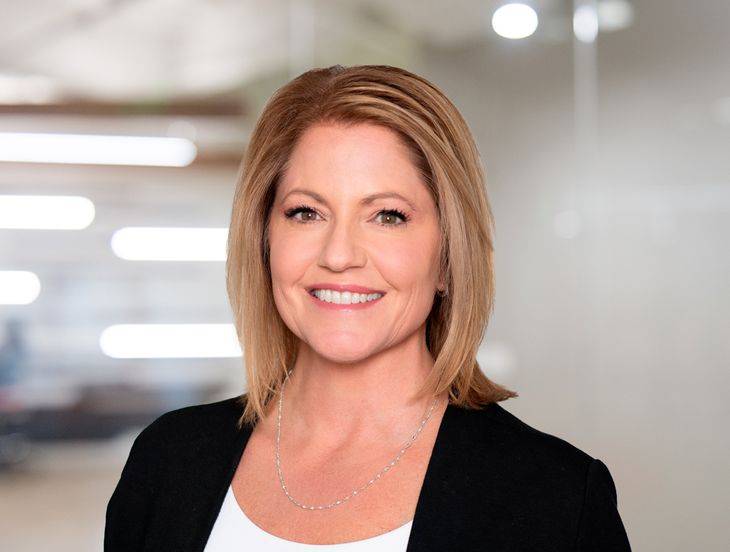Feds to Charge $100K for H-1B Visas: Employer FAQs + Action Plan
Insights
9.22.25
The Trump administration upended the immigration and workforce strategy for many tech employers and other businesses late Friday when it announced that it would begin charging a $100,000 entry fee for each H-1B visa recipient. After a few hours of confusion, the administration clarified that, beginning September 21, employers must submit the $100K payment to accompany or supplement H-1B petitions only for new applications. While there is still some confusion around the specifics of President Trump’s proclamation and those affected, the good news is that this move will not impact existing H-1B visa holders and should not force all foreign national workers to immediately rush back to the US. Here are the answers to the key Frequently Asked Questions about this development and an employer’s action plan in response.
What Are H-1B Visas?
The H-1B visa program is a non-immigrant category that allows US employers to hire foreign workers in specialty occupations requiring highly specialized knowledge:
- Each applicant must be sponsored by a US employer and have at least a bachelor’s degree or equivalent.
- Recipients are initially approved for up to three years, and their approval can be extended for up to six years. (Many recipients often work their way through the green card process during this period.)
- About 85,000 new H-1B visas are available each year (not including universities, which are excluded from that cap). Last year, employers submitted approximately 425,000 H-1B visa petitions. The government holds an annual lottery to select those workers who will gain the visa.
- H-1B visas are commonly used in the technology, engineering, and healthcare sectors.
What Was the Typical Cost of H-1Bs?
Before the new proclamation took effect, the government fees to pursue an H-1B visa were known and predictable. Applicants would submit a $215 registration fee for the initial H-1B cap lottery, and private employers would submit a $780 fee to sponsor a petition along with additional fees of approximately $1,800 to $2,600.
What Did Trump Announce?
According to the proclamation, the Trump administration is aiming to curb abuses of the H-1B system that may disadvantage the US workforce and lead to wage suppression. Important points for employers from the proclamation and the Department of State’s H-1B FAQ include:
- The $100,000 payment for an H-1B visa does not change any payments or fees required to be submitted in connection with any H-1B renewals. Rather, it’s a one-time fee for a new H-1B petition.
- The fee will apply only to future applicants, including in the FY2027 cap lottery (to occur in March 2026) and any H-1B petitions submitted on or after September 21.
- It will not apply to anyone who participated in the FY2026 lottery (which occurred in March 2025).
- There may be exceptions for an individual, a company, or an industry, if DHS determines that it is in the national interest of the US and does not pose a threat to the security or welfare of the US.
Will This Move Impact Existing H-1B Visa Holders?
No. In a September 20 memo, USCIS announced that the move only applies prospectively to petitions that have not yet been filed. It doesn’t apply to foreign nationals who have:
- existing petitions filed prior to September 21;
- currently approved petitions; or
- validly issued H-1B non-immigrant visas.
Moreover, the memo states that the move does not impact the ability of any current visa holder to travel to or from the United States. While the USCIS and similar Customs and Border Protection (CBP) memos suggest that the new $100,000 would impact new filings on or after September 21, a post on X by White House Press Secretary Karoline Leavitt on Saturday provided further clarification regarding the limited application of this new rule. In her post, Leavitt clarified that:
- Those outside the US with valid H-1B visas will not be impacted;
- This applies only to new visas, not renewals or those with valid visas; and
- It will first apply in the next upcoming lottery cycle.
The FAQs issued by the Department of State on September 21 also note that the proclamation does not change any payment of fees required in connection with any H-1B renewals. Based on this information, it appears that only new H-1Bs filed in the H-1B cap lottery occurring in 2026 would be impacted.
Will We See Lawsuits Challenging This Plan?
We’ll almost certainly see business groups or other challengers file litigation against this new fee. The Immigration and Nationality Act (INA) and the US Constitution give Congress the power to establish naturalization rules, and courts have held that Congress has full and exclusive authority over creating new visa categories and prescribing the terms, conditions, and required fees.
What Should Employers Do? Your 5-Step Action Plan
Although we anticipate litigation, you can’t assume these new fees will be set aside by federal courts. Instead, employers must begin planning for this new era of H-1B restrictions. Here are a few steps you should consider taking to adjust.
- Expect more clarifications. There is still quite a bit of confusion about the application of this new rule, so employers should continue to monitor information carefully as it comes from the White House and Trump administration.
- Reach out to all your employees in H-1B status so they are aware of the current interpretations of this proclamation and the need to stay up to date on its status as details unfold.
- Assess the travel needs of any employees in H-1B status and ensure they have proper documentation to return to the US as well as up-to-date information about the impact of this new rule.
- Ensure employees notify you of international travel plans prior to their departure so you can review the current interpretation and implementation of this proclamation and assess travel risks.
- Consult with legal counsel regularly, so that plans can be developed to ensure workers maintain their status and employment.
What’s Next
The White House plans to take further steps in an attempt to reform the H-1B program, as contemplated in the proclamation, including:
- A rulemaking by the Department of Labor to revise and raise the prevailing wage levels in order to upskill the H-1B program and ensure that it is used to hire only the best of the best temporary foreign workers.
- A rulemaking by the Department of Homeland Security to prioritize high-skilled, high-paid foreign nationals in the H-1B lottery over those at lower wage levels.
The White House is considering additional reforms that will be announced in the coming months. So, stay tuned.
Conclusion
For support, please contact your Fisher Phillips attorney, the authors of this Insight, or any member of our Immigration Practice or Technology Industry Team. Make sure you are subscribed to Fisher Phillips’ Insight System to receive the most up-to-date information directly to your inbox.
Related People
-
- Jocelyn Campanaro
- Partner
-
- Shanon R. Stevenson
- Partner

